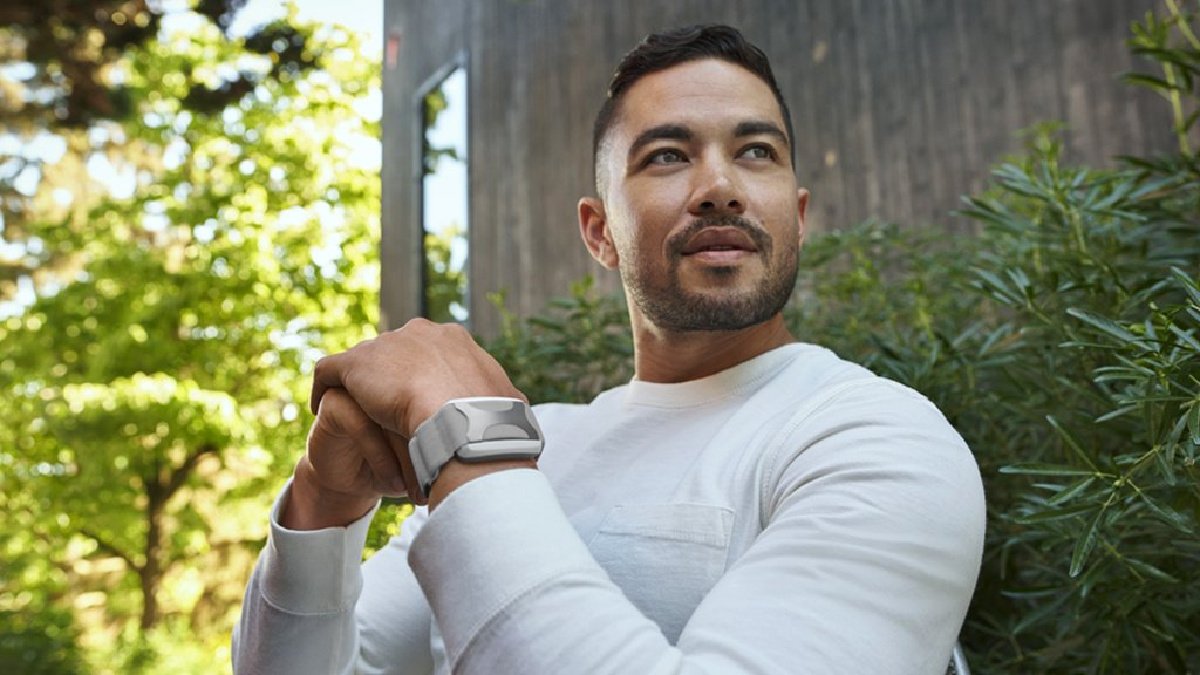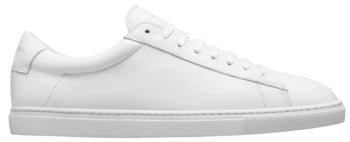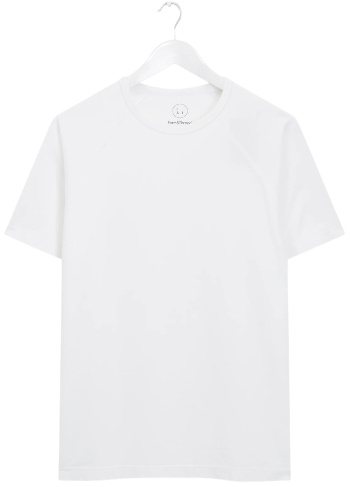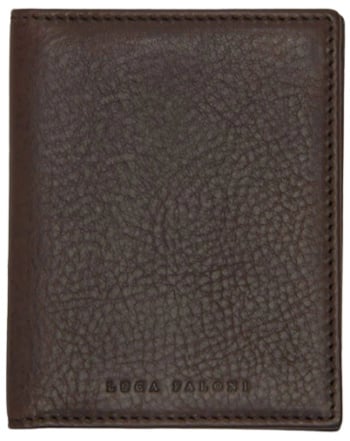Are your tech devices helping or hurting you? It’s a heady question to consider.
Our smartphones, for example, are mini supercomputers we take everywhere. They supply us with boundless information and instantly connect us with everyone in our lives.
Yet, our phones also bombard us with a rapid-fire flurry of dings, buzzes, emails, updates, and notifications—that further deepens our digital addiction, ignites our sympathetic nervous system (the fight-or-flight one), and hurls us into hyper-alert, stressed-out moods.
Wellness wearables were created as the antidote to everyday stressors like tech overload.
Apple Watch, FitBit, Whoop, and other wearables track biometrics such as heart rate, activity, and sleep and make it fun for users to hit daily health goals like the number of steps taken, hours slept, etc.
Apollo Neuro goes one step further as one of the only wearables on the market that work to actively influence and improve your biometrics—not just track them.
Skip Ahead
Apollo Neuro and Sleep
Apollo Neuro is a small, screenless device that was designed and co-founded by credentialed neuroscientist and board-certified psychiatrist, Dr. David Rabin, MD, Ph.D. Strapped onto the wrist or ankle, Apollo Neuro emits soft vibrations that influence your heart rate variability (HRV) and activate the sympathetic nervous system (the calming one).
The Apollo team claims this restores balance to the body and leads to better sleep, focus, and energy production.
By emitting pulsing frequencies, Apollo Neuro uses your sense of touch to change the balance of your nervous system. Quite impressively, these frequencies match the natural oscillation pattern between your heart and lungs.
Adapt to every rhythm of life with this wearable designed to help you de-stress, focus, and fight through that mid-afternoon sleepy period that gets me every. single. time.
Apollo Neuro serves up an array of modes that cover just about every desired mood you’d want to feel throughout the day. These include:
- Energy and Wake Up
- Social and Open
- Clear and Focused
- Rebuild and Recover
- Meditation and Mindfulness
- Relax and Unwind
- Sleep and Renew
In an effort to substantiate some of their claims, Apollo’s research team launched a real-world observational sleep study with over 500 participants, each using both Apollo Neuro and an Oura Ring, a health tracking device that accurately measures sleep and cardiovascular metrics.

While the study is still ongoing, the Apollo team released a preliminary analysis based on the data collected thus far.
How To Measure Good Sleep
Having direct access to a large pool of user data, the Apollo team set out to measure deep sleep scores, REM sleep scores, total sleep duration, and cardiovascular metrics like resting heart rate and heart rate variability (HRV).
Before we analyze their findings, let’s pause for a hot second and define why these metrics matter.
When you drift off, your body cycles through several stages of sleep before you hit REM sleep. The last of those stages is deep sleep, which lasts about 20 to 40 minutes. In deep sleep, delta brain wave activity increases and it becomes more difficult to wake you up.
After that, you enter rapid eye movement sleep or REM sleep. REM sleep is where your eyes flutter around and you do most of your dreaming.
Deep sleep and REM sleep are the meccas of sleep, the créme de la créme, the holy grails. While each phase is important in succession, you want to be hitting those final stages of deep and REM sleep to feel like a crisply minted million bucks the next morning.
Total sleep duration simply refers to how long you slept in total.
Heart rate and HRV are important because these are deciding factors and indicators of good sleep. Your HRV is the range of time in intervals between your heartbeats. A healthy heart should not tick rhythmically but rather speed up and slow down, adjusting to the current state your body is in.

In a high-strung state of stress, your parasympathetic nervous system kicks on, your HRV is low, and you can’t fully relax, recharge, and repair your body. When you switch on the sympathetic nervous system and fully let your guard down, your body’s HRV goes up, and you’re ready for deep, reparative sleep.
Now that we’ve defined those metrics, let’s dive into the Apollo team’s sleep study and their juicy findings.
Details of the Study
Sleep is a big, fat, restless issue in America. Can you name a sluggish coworker who hovers mindlessly over the espresso machine and nods off sideways in Zoom calls? Turns out that’s not so abnormal.

Somewhere around 70 million Americans suffer from chronic sleep conditions with about 35% of adults failing to meet recommended levels of nightly sleep. You can blame it on Netflix’s dynamite release schedule, but there’s a slew of culprits that can be affecting your sleep.
Participants in Apollo’s study were not given instructions on how or when to use their Apollo Neuro, or any formal sleep or activity guidelines to adhere to. The only requirement was that participants had 14 days of Oura Ring data prior to using Apollo Neuro and 14 days of data after they began using Apollo Neuro.

On average, subjects used the Oura Ring for five months before introducing Apollo Neuro to establish a baseline for what their biometrics were like before Apollo Neuro came into play. Once subjects began using Apollo Neuro regularly throughout their day, they were tracked for 3-15 months and data from the Oura Ring was collected and analyzed.
Apollo Team’s Hypothesis
Put simply, the Apollo team hypothesized: “consistent Apollo Neuro use will increase sleep duration and quality and result in improved metrics of cardiovascular fitness.”
The team would then determine if this hypothesis was true by measuring Apollo Neuro’s impact on both sleep quality and cardiovascular metrics.
What They Found

Okay okay, we know that Apollo Neuro emits different vibrational frequencies into your wrist or ankle that activate your parasympathetic nervous system and nudge your brain to be more energized or calm or focused or relaxed.
So, how would training your nervous system like this impact your sleep over time?
Participants in the study saw statistically significant improvements in nearly every aspect of sleep, including deep sleep, REM sleep, total sleep, resting heart rate, and HRV.

Users who reaped the best sleep and cardiovascular benefits were those who used Apollo Neuro for at least three hours per day, five days per week, during both the day and night.
The sleep improvements of using Apollo Neuro were on par with the benefits of people who adopt mindfulness practices, exercise regularly, or maintain a meditation practice.
By doing nothing other than consistently implementing Apollo Neuro into your routine, you’d be getting the same sleepy benefits as someone who never skips the gym or religiously settles into daily meditation.
Apollo Neuro users experienced:
- 19% average increase in deep sleep
- 14% increase in REM sleep
- 6% increase in total sleep time
- 11% increase in HRV
- 4% decrease in resting heart rate
Adapt to every rhythm of life with this wearable designed to help you de-stress, focus, and fight through that mid-afternoon sleepy period that gets me every. single. time.
Sleep On It
A balanced life full of work, social interaction, exercise, a healthy diet, and time to disconnect and unwind will lay the groundwork for a lovely night of sleep ahead.
But in a tech-centric society with tons of small stressors weighing on us daily, it might be worth it to pick up some extra tools to counteract the effects of feeling plugged in all the time and set yourself up for a better night’s sleep.
Apollo Neuro, powered by a rigorous team of neuroscientists, is proving to be a powerful wellness wearable that actively influences your biometrics, instead of merely tracking them.
FAQs
Does Apollo Neuro help with anxiety?
Apollo Neuro emits pulsing, vibrational frequencies into your wrist or ankle that use your sense of touch to engage your parasympathetic nervous system. This can pull you out of a state of stress and anxiety and help to calm you down and induce a relaxed or focused state.
Does Apollo Neuro help you sleep?
The Apollo Neuro team has released a preliminary analysis of an ongoing 2-year study on Apollo Neuro’s benefits on sleep. The data collected shows that users who wore their Apollo Neuro wearable for at least three hours per day, five days per week, saw statistically significant improvements in nearly every aspect of sleep, including deep sleep, REM sleep, total sleep, resting heart rate, and HRV.











